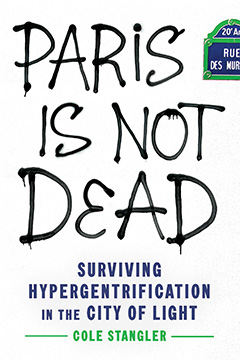Paris Is Not Dead
A street-level people’s view of one of the world’s beloved cities, in a stunning debut that blends cutting-edge reporting and sweeping political analysis of a changing Paris
“Working-class Paris is still around today, as real as the cobblestones, gray zinc roofs, and dusty railyards cutting through its neighborhoods.” —from the introduction
The Paris of popular imagination is lined with cobblestone streets and stylish cafés, a beacon for fashionistas and well-heeled tourists. But French-American journalist Cole Stangler, celebrated for his reporting on Paris and French politics, argues that the beating heart of the City of Light lies elsewhere—in its striving, working-class districts whose residents are being priced out of their hometown today.
Paris Is Not Dead explores the past, present, and future of the City of Light through the lens of class conflict, highlighting the outsized role of immigrants in shaping the city’s progressive, cosmopolitan, and open-minded character—at a time when politics nationwide can feel like they’re shifting in the opposite direction. This is the Paris many tourists too often miss: immigrant-heavy districts such as the 18th arrondissement, where crowded street markets still define everyday life. Stangler brings this view of the city to life, combining gripping, street-level reportage, stories of today’s working-class Parisians, recent history, and a sweeping analysis of the larger forces shaping the city.
In the tradition of Lucy Sante and Mike Davis, Paris Is Not Dead offers a bottom-up portrait of one of the world’s most vital urban centers—and a call to action to Francophiles and all who care about the future of cities everywhere.
Praise
|
|


